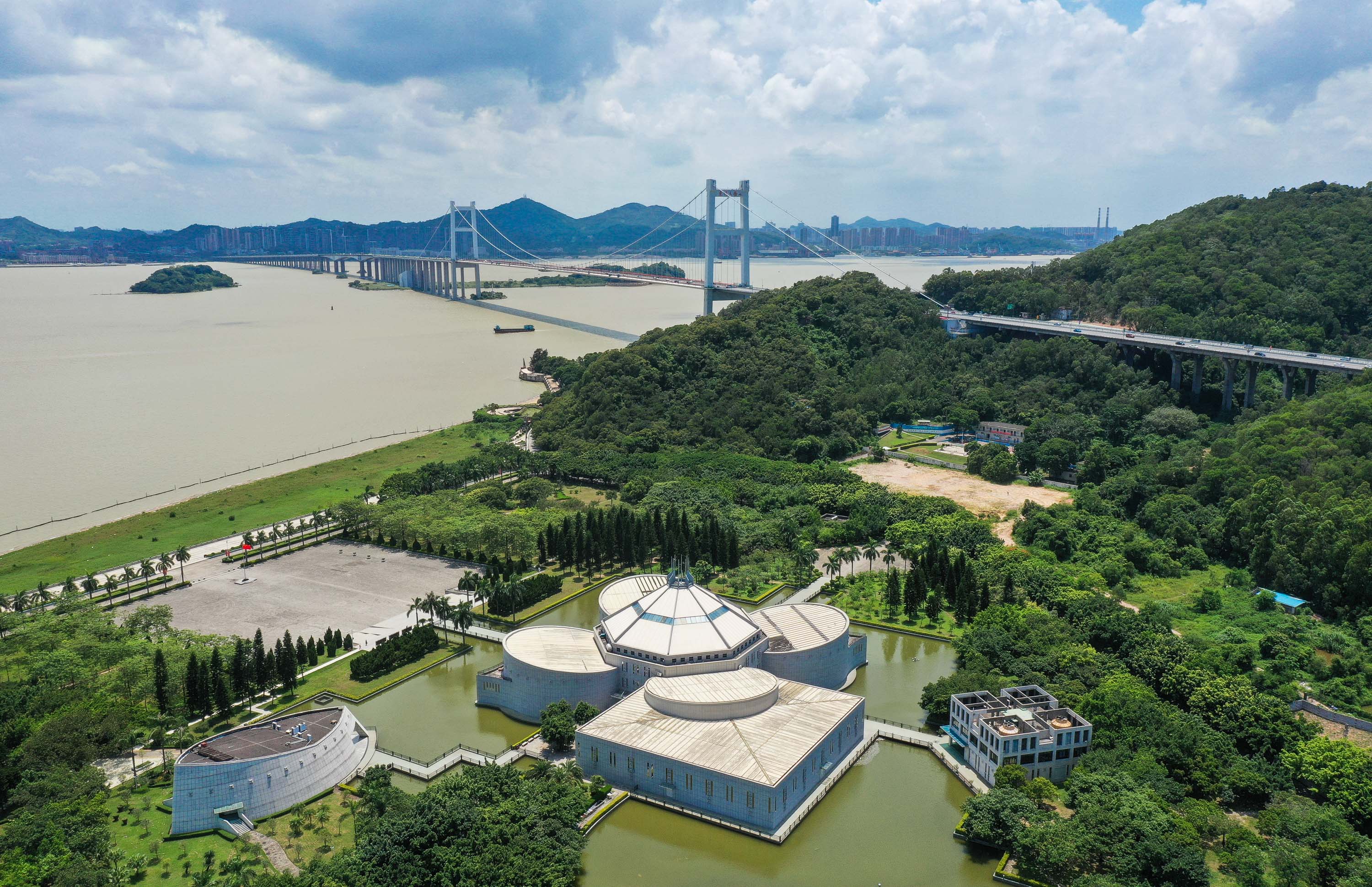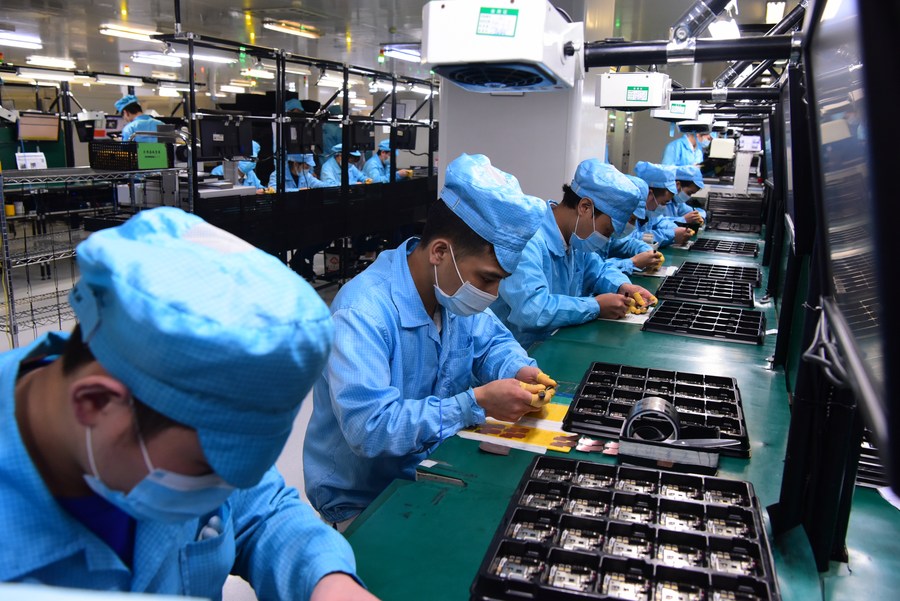'World factory' upgraded with high-tech, new energy and originality
Updated 14:26, 13-Jun-2023
Aerial photo shows Nishui Liugui Village Fortress in Humen Township of Dongguan City, south China's Guangdong Province, June 24, 2020. /Xinhua
Dongguan in south China's Guangdong Province earned the title "world factory" as a result of its unparalleled manufacturing enterprise and foreign trade volume, but it's now moving beyond its stereotypical image as just a hub for mobile phones and garments.
As the 24th Chinese city to have a GDP above 1 trillion yuan (about $140.62 billion), Dongguan is forging ahead with high-tech, new energy and originality.
Advanced sci-tech research
In the "world factory" lies a world-class sci-tech project, China Spallation Neutron Source (CSNS). Over 1,000 research tasks have been tackled since it started in August 2018.
Chen Hesheng, general director of the CSNS and an academician at the Chinese Academy of Sciences, explained that a spallation neutron source is like a super microscope to help study the microstructure of some material.
"This function could find out, for example, when the parts of high-speed trains should change to avoid accidents caused by fatigue of materials," he said.
Chen said the transformation of CSNS achievements to practical use is underway. For now, the second phase of CSNS is under construction, and the cooperation between CSNS and high-level colleges and institutes is accelerating to build scientific research instruments.
Chen considered the CSNS the most significant infrastructure behind the comprehensive national science center in the Guangdong-Hong Kong-Macao Greater Bay Area.
Aerial photo shows the Sea Battle Museum in Humen Town, Dongguan City, south China's Guangdong Province, June 23, 2020. /Xinhua
Emphasis on new energy
Founded in 2010, Greenway Technology is a leading manufacturer of lithium-ion batteries for micro-mobility and energy storage applications such as electric bikes, electric motorcycles, drones, intelligent robots and sound equipment.
With clients in over 80 countries and regions, Greenway has invested nearly 260 million yuan in research and development in the recent three years to secure its competitiveness in the new energy market.
Thanks to early-stage planning and quick response, the company has rapidly grown and maintained a 20 percent share of the European market, said Liu Cong, Greenway's vice president.
According to official statistics, Dongguan's new energy industry saw revenues up 11.3 percent year on year to 66.73 billion yuan in 2022.
The local government has coordinated policies and funds to build a strategic base for emerging industries, including new-style energy storage, new energy vehicles, parts, semiconductors and integrated circuits, said Liang Yangyang, chief economist of Dongguan's industry and information technology bureau.
Staff wearing masks work at the factory of OPPO in Dongguan City, south China's Guangdong Province, February 13, 2020. /CFP
Originality in manufacturing
Despite emphasizing high-tech and new energy, Dongguan still attaches great importance to manufacturing, which contributes to over half of the city's GDP.
As one of the city's industrial pillars, the toy industry has over 4,000 manufacturers and nearly 1,500 supporting enterprises. Among them, ToyCity is a pioneer in exploring paths for more brand power and added value.
Originality is the key to the company's success, said Zheng Bo, ToyCity's founder, while introducing the fashion and trend toys designed by his company.
Toy companies used to choose contract manufacturing at the expense of initiative. But it's different now, Zheng said, stressing that creating original brands with intellectual property rights wins independence and profit for toy businesses.
ToyCity's annual turnover has exceeded 100 million yuan, and profits have surged over 300 percent since its path changed towards originality, Zheng added.
Furthermore, supportive measures have been implemented by the local government, such as financial support, fashion toy centers and Chinese fashion design competitions to establish a whole industry chain for toy manufacturing.



